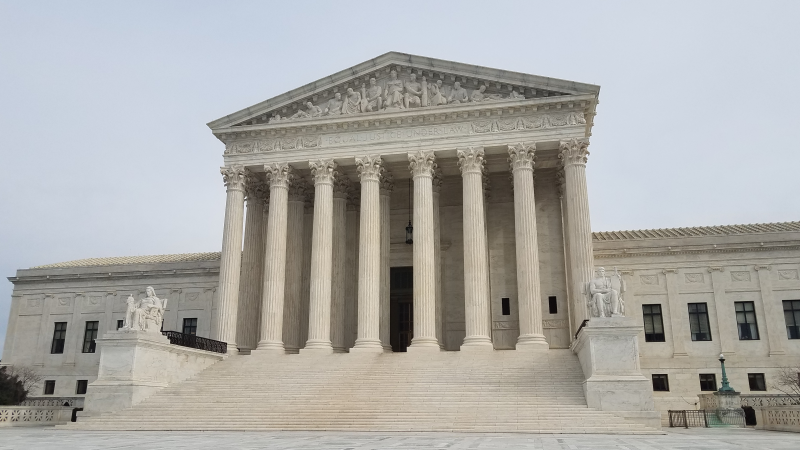Supreme Court to commence new term on Monday as election, Barrett hearings draw near
The high court will commence a new term with just eight justices, though the void could soon be filled, if Senate Republicans confirm Judge Amy Coney Barrett to the high court.
The Supreme Court on Monday will commence a new term with just eight justices following September death of the Justice Ruth Bader Ginsburg, though the void could soon be filled if Senate Republicans confirm Judge Amy Coney Barrett to the high court.
Barrett's confirmation would mark the third Trump appointee to the nine-member court during the president's less than four years occupying the Oval Office. The Senate confirmed Neil Gorsuch in 2017 and Brett Kavanaugh in 2018 .
Though the first vacancy arose during President Barack Obama's tenure, Senate Republicans declined to consider the Democratic president's nominee Merrick Garland. Then-candidate Trump made the presidential power to appoint Supreme Court nominees a central argument to voters during the 2016 election.
Barrett's addition to the court would likely provide a significant conservative advantage, allowing the conservative justices to decide cases 5-4 even if the George W. Bush-appointed Chief Justice John Roberts were to side with the court's three liberal justices.
The new term will get underway remotely as the court continues to conduct business via phone amid the coronavirus pandemic, as it began doing at the conclusion of the last term, according to the Associated Press. The public will be able to to hear arguments live.
The wire service reported that the cases during the coming two weeks were slated for last spring but were delayed due to the high court shutting down for a period because of the coronavirus.
If confirmed swiftly enough, Barrett could potentially be on the court by the day after the presidential election, when the justices are slated to hear a case concerning a Catholic Church-run social service agency that filed a lawsuit after Philadelphia ceased placing children there due to the plaintiff's policy of not allowing homosexual couples to play the role of foster parents, according to the AP.
The Supreme Court could play a key role after the Nov. 3 general election if it decides to hear voting-related cases. A dramatic expansion on short notice of mail-in balloting in this cycle is expected to precipitate a flood of election litigation.















